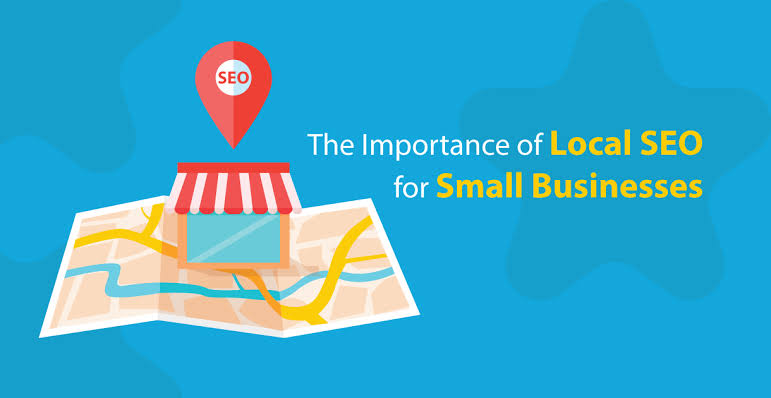In today’s competitive marketplace, small and medium-sized businesses can’t rely solely on word-of-mouth or repeat customers to drive growth. Consumer behavior has shifted dramatically over the past decade, and now, when people need a product or service, the first thing they do is reach for their phone and search.
If you run a business and aren’t showing up in those search results, especially the local ones, you’re essentially invisible to a large portion of your potential market. And in many cases, those lost clicks translate directly to lost revenue.
This is where Local SEO steps in — not just as a marketing tactic, but as one of the most important investments you can make for long-term growth.
What is Local SEO?
Local SEO (local search engine optimization) is the process of optimizing your online presence so that your business appears in search results when people look for products or services in their area.
Think about it: when someone types “dentist near me”, “best coffee shop in [city]”, or “emergency plumber open now” into Google, they’re not browsing for fun. They’re looking for a solution, and they’re usually looking to act right now.
Google uses a mix of factors — including proximity, relevance, and reputation — to decide which businesses appear at the top. If you’re not actively optimizing for these local searches, you risk losing customers to competitors who are.
Why Local SEO Matters for Small Businesses
Many small business owners assume that online marketing is all about social media followers or running ads. While those channels can work, Local SEO offers unique advantages:
1. High-Intent Traffic
Unlike people scrolling through Instagram or Facebook, users searching locally have intent. They’re not casually browsing; they’re actively looking to buy. A person who searches “best pizza in downtown [city]” is likely minutes away from making a decision — and possibly walking through your door.
2. Mobile-First Search Dominance
Over 60% of Google searches now happen on mobile devices, and a huge portion of those are location-based. When people are on the go, they’re looking for immediate results. If your business shows up in those map listings, you’ve just made it easier for them to choose you over a competitor.
3. Leveling the Playing Field
One of the biggest misconceptions about SEO is that it’s only for large companies with big budgets. In reality, local optimization allows smaller businesses to compete with — and often outrank — larger brands in their own neighborhoods. Many small businesses still neglect Local SEO, leaving the door wide open for competitors who prioritize it.
The Core Components of Local SEO
Local SEO isn’t about just one thing — it’s a combination of strategies that work together to improve visibility.
1. Optimize Your Google Business Profile (GBP)
Your GBP is often the first thing customers see when they search for your business. Make sure your:
- Name, address, and phone number are correct and consistent across all platforms.
- Business hours are updated, including holiday hours.
- High-quality photos are uploaded (interior, exterior, products, team).
- Services and products are listed in detail.
- Regular posts or updates are shared to keep the profile active.
2. Earn and Respond to Reviews
Reviews are more than just social proof — they influence your ranking in local searches. Encourage happy customers to leave reviews, and always respond to them, whether they’re positive or negative. A thoughtful, professional reply shows you value feedback and customer relationships.
3. Post Local Content
Publishing content that speaks to your community helps Google understand your local relevance. This could be blog posts about local events, promotions tied to the area, or case studies featuring nearby customers.
4. Build Local Backlinks
Getting links from local blogs, newspapers, chambers of commerce, or community organizations signals to search engines that your business is a trusted part of the community.
5. Ensure Website Local Optimization
Your website should clearly state your location and service area. Include your city or neighborhood name in page titles, meta descriptions, and throughout your content — but do it naturally.
How Local SEO Translates into Revenue
Let’s break down how these optimizations actually lead to more sales:
- More Visibility = More Clicks: Showing up in the top three local search results (the “map pack”) dramatically increases the chances of someone visiting your website or calling your business.
- More Clicks = More Leads: Local searchers often contact multiple businesses, but if you answer quickly and provide clear information, you’re likely to win their business.
- More Leads = More Revenue: Even small improvements in local rankings can lead to a steady flow of new customers each month.
A med spa, for example, that moves from position 10 to position 2 for “Botox in [city]” could see hundreds of additional website visits — and dozens of new bookings — simply by being more visible.
Where Agencies Fit In
While the benefits of Local SEO are clear, the actual implementation can be overwhelming, especially for business owners already stretched thin. This is where partnering with an agency can make sense.
Many small businesses make the mistake of handling Local SEO reactively — updating a profile here, posting on social media there — but without consistency, results are limited.
Agencies like Post Savage integrate Local SEO into a larger, ongoing marketing plan. Their approach combines:
- Daily social media posting across multiple platforms.
- Local keyword targeting to boost search visibility.
- Reputation management to keep reviews flowing.
- Content creation that aligns with SEO best practices.
And because Post Savage uses a dedicated Slack channel for each client, business owners get direct access to their marketing team with response times of around 30 minutes during business hours. That means questions get answered quickly, changes are implemented fast, and campaigns stay on track without the back-and-forth delays that often happen with traditional agencies.
Common Local SEO Mistakes to Avoid
Even well-intentioned business owners can sabotage their local rankings without realizing it. Here are a few pitfalls to watch for:
- Inconsistent Information
If your address or phone number is different across directories, Google can get confused — and your rankings can suffer. - Neglecting Reviews
Ignoring negative reviews or failing to thank customers for positive ones sends the wrong message. - Keyword Stuffing
Overusing your city name in an unnatural way can hurt your rankings rather than help. - One-and-Done Approach
Local SEO is ongoing. Profiles, content, and backlinks need to be maintained over time.
The Bottom Line
If your business isn’t showing up in local search results, you’re leaving money on the table for your competitors. Local SEO isn’t just about marketing — it’s about being discoverable at the exact moment customers are ready to buy.
Whether you choose to tackle it yourself or partner with an agency like Post Savage, the key is consistency. Regular updates, strategic optimization, and community engagement are what will keep you visible — and profitable — in the long run.
The future of small business growth is local, and visibility is the currency. Make sure you’re cashing in.
Learn more about done-for-you local marketing solutions at postsavage.ai/done-for-you.



